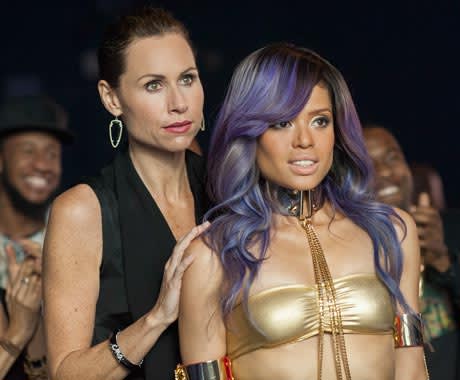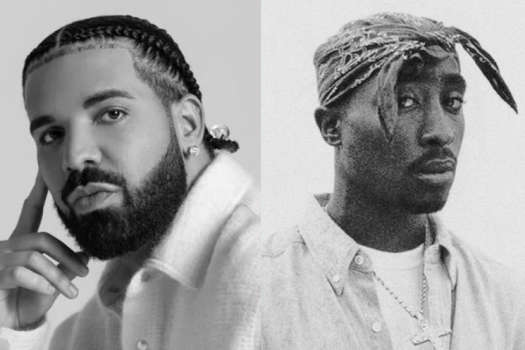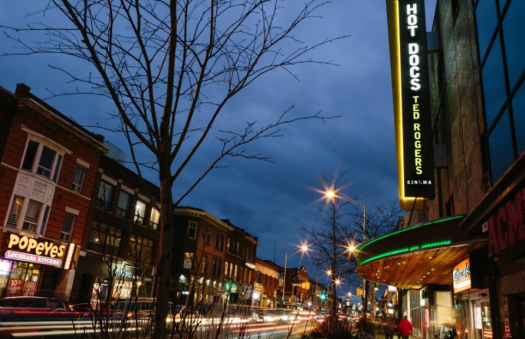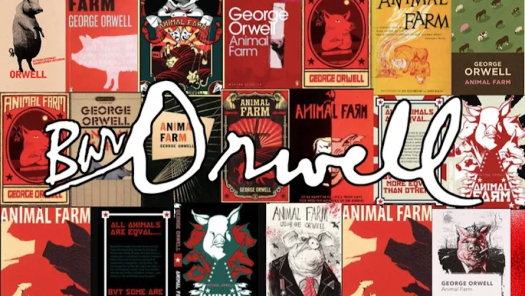At first blush, Beyond the Lights might seem like an updated version of The Bodyguard. This is winkingly alluded to in an early scene, but writer and director Gina Prince-Bythewood manages to add enough wrinkles of her own to her latest effort, tying it to themes explored previously in her work. Prince-Bythewood is perhaps best known for her 2001 film Love and Basketball, and much like that film, Beyond the Lights (originally titled Blackbird, presumably after the Nina Simone song that figures prominently) uses the conventions of a romantic relationship within a high-profile environment to shed light on issues typically overlooked by the mainstream.
The film focuses on the journey and rapidly rising career of Noni Jean (Gugu Mbatha-Raw), a singer on the fast track to success and on the cusp of releasing her debut album, but who is with sobering internal issues at odds with her sexualized music persona. This is established early when, on the same night that she notches a Billboard Music Award, Noni is sitting on a hotel balcony ready to take her own life. She's dragged back to safety by policeman Kaz (Nate Parker) and then plays off the ensuing media attention around the incident by insisting she slipped and fell while drunk.
Eager to not let the swirling rumours around this incident derail Noni's imminent success, her driven and determined mother and manager (Minnie Driver), spurred on by their hardscrabble beginnings in Brixton, South London, is willing to look beyond the warning signs, leading to inevitable tension.
While the ensuing and eventual romantic ups and downs of Kaz and Noni's relationship do take some predictable routes, the film owes a lot to the charisma of its performers. Nate Parker is stoic and understated as Kaz, a cop whose work at the precinct is meant to be a mere stopgap on his road to fulfilling the political ambitions instilled in him by his policeman father (Danny Glover). His encounter and ensuing relationship with Noni throws a proverbial wrench into that smooth ascent. As Noni, Mbatha-Raw is positioned to collect the overdue attention that has been denied to her to this point. A co-lead in J. J. Abrams' ill-fated series Undercovers and a breakout role in Amma Asante's slavery-era drama Belle, (which premiered at last year's TIFF), this role has the potential to usher her firmly onto the radar of mainstream audiences.
As in Belle, Mbatha-Raw excels at conveying inner conflict, currying genuine empathy for her character's dilemmas while playing to the demands of her star public persona. After decamping to Mexico with Kaz in the latter part of the film, Noni removes her extensions to opt for a natural, no-makeup look. It might sound innocuous and clichéd, but Mbatha-Raw handles a scene that could have been overwrought and heavy-handed with subtlety, cognizant of the social connotations ascribed to the hair of black women.
Some other scenes, however, lack this deft approach. Cameos by the likes of Big Sean and CNN anchor Don Lemon — not to mention Noni's BET Awards performance functioning as a pivotal plot point (BET is a co-producer of the film) — feel as awkward and shoehorned in as they sound, and Noni's relationship with scuzzy and lecherous Machine Gun Kelly-type rapper Kid Culprit (played by, er, Colson "Machine Gun Kelly" Baker) is also pretty unconvincing. While the film takes an admirable stand on people seeking help for the mental health issues they may be encountering, this too could have been approached in a more in-depth way, instead of neatly tying things up at the end.
However, Beyond the Lights does make some very salient points about the pervasiveness and influence of social media, and unashamedly champions a path to self-discovery and acceptance that is hard to be cynical about.
(eOne)The film focuses on the journey and rapidly rising career of Noni Jean (Gugu Mbatha-Raw), a singer on the fast track to success and on the cusp of releasing her debut album, but who is with sobering internal issues at odds with her sexualized music persona. This is established early when, on the same night that she notches a Billboard Music Award, Noni is sitting on a hotel balcony ready to take her own life. She's dragged back to safety by policeman Kaz (Nate Parker) and then plays off the ensuing media attention around the incident by insisting she slipped and fell while drunk.
Eager to not let the swirling rumours around this incident derail Noni's imminent success, her driven and determined mother and manager (Minnie Driver), spurred on by their hardscrabble beginnings in Brixton, South London, is willing to look beyond the warning signs, leading to inevitable tension.
While the ensuing and eventual romantic ups and downs of Kaz and Noni's relationship do take some predictable routes, the film owes a lot to the charisma of its performers. Nate Parker is stoic and understated as Kaz, a cop whose work at the precinct is meant to be a mere stopgap on his road to fulfilling the political ambitions instilled in him by his policeman father (Danny Glover). His encounter and ensuing relationship with Noni throws a proverbial wrench into that smooth ascent. As Noni, Mbatha-Raw is positioned to collect the overdue attention that has been denied to her to this point. A co-lead in J. J. Abrams' ill-fated series Undercovers and a breakout role in Amma Asante's slavery-era drama Belle, (which premiered at last year's TIFF), this role has the potential to usher her firmly onto the radar of mainstream audiences.
As in Belle, Mbatha-Raw excels at conveying inner conflict, currying genuine empathy for her character's dilemmas while playing to the demands of her star public persona. After decamping to Mexico with Kaz in the latter part of the film, Noni removes her extensions to opt for a natural, no-makeup look. It might sound innocuous and clichéd, but Mbatha-Raw handles a scene that could have been overwrought and heavy-handed with subtlety, cognizant of the social connotations ascribed to the hair of black women.
Some other scenes, however, lack this deft approach. Cameos by the likes of Big Sean and CNN anchor Don Lemon — not to mention Noni's BET Awards performance functioning as a pivotal plot point (BET is a co-producer of the film) — feel as awkward and shoehorned in as they sound, and Noni's relationship with scuzzy and lecherous Machine Gun Kelly-type rapper Kid Culprit (played by, er, Colson "Machine Gun Kelly" Baker) is also pretty unconvincing. While the film takes an admirable stand on people seeking help for the mental health issues they may be encountering, this too could have been approached in a more in-depth way, instead of neatly tying things up at the end.
However, Beyond the Lights does make some very salient points about the pervasiveness and influence of social media, and unashamedly champions a path to self-discovery and acceptance that is hard to be cynical about.




